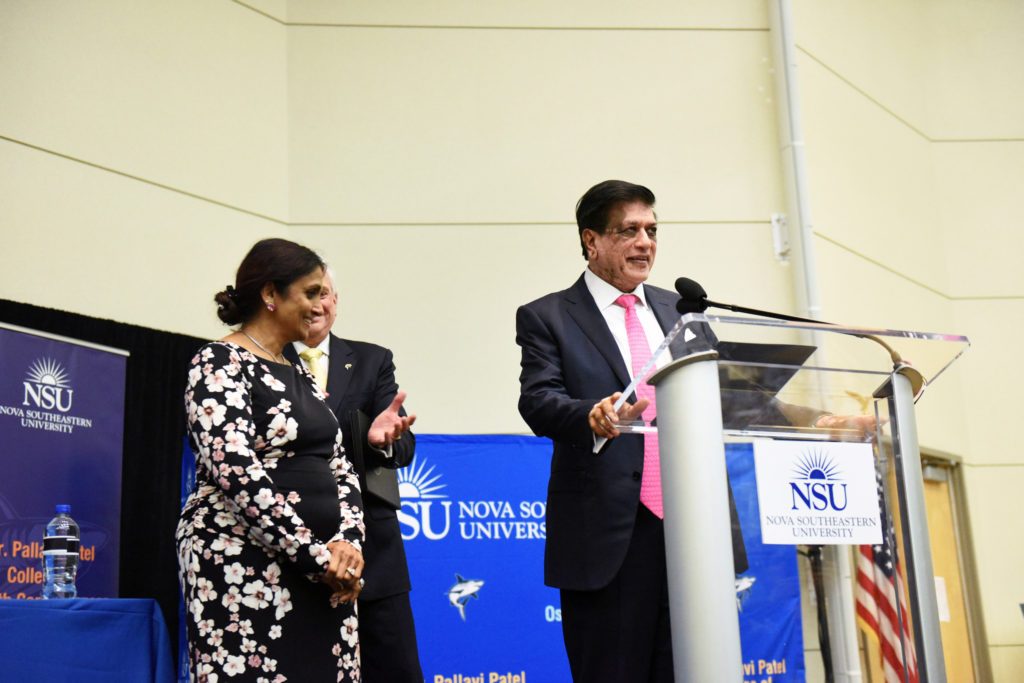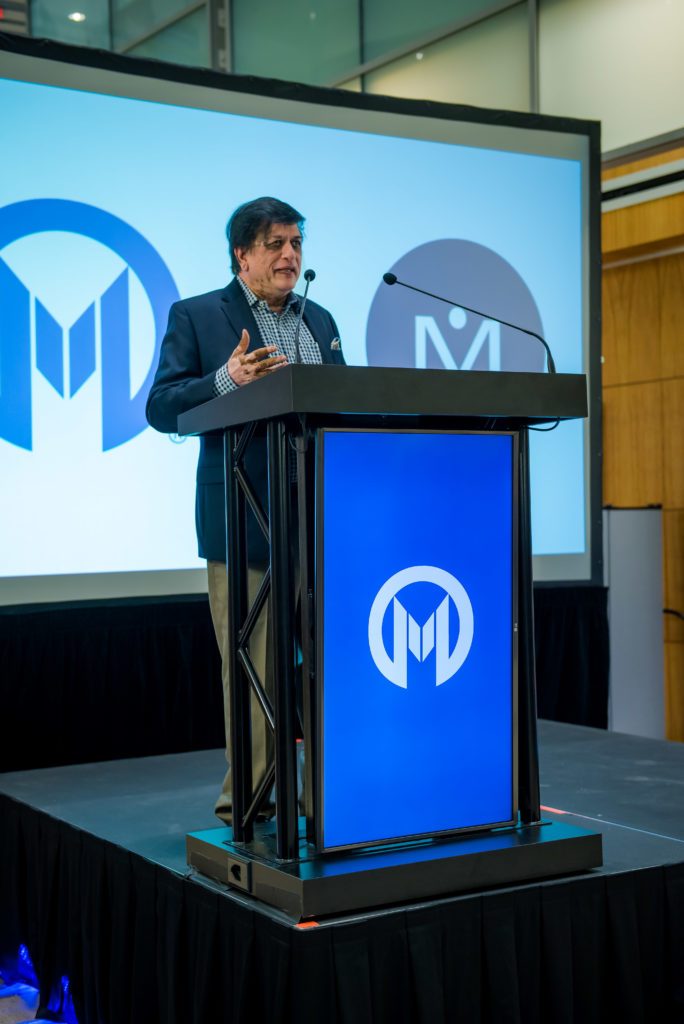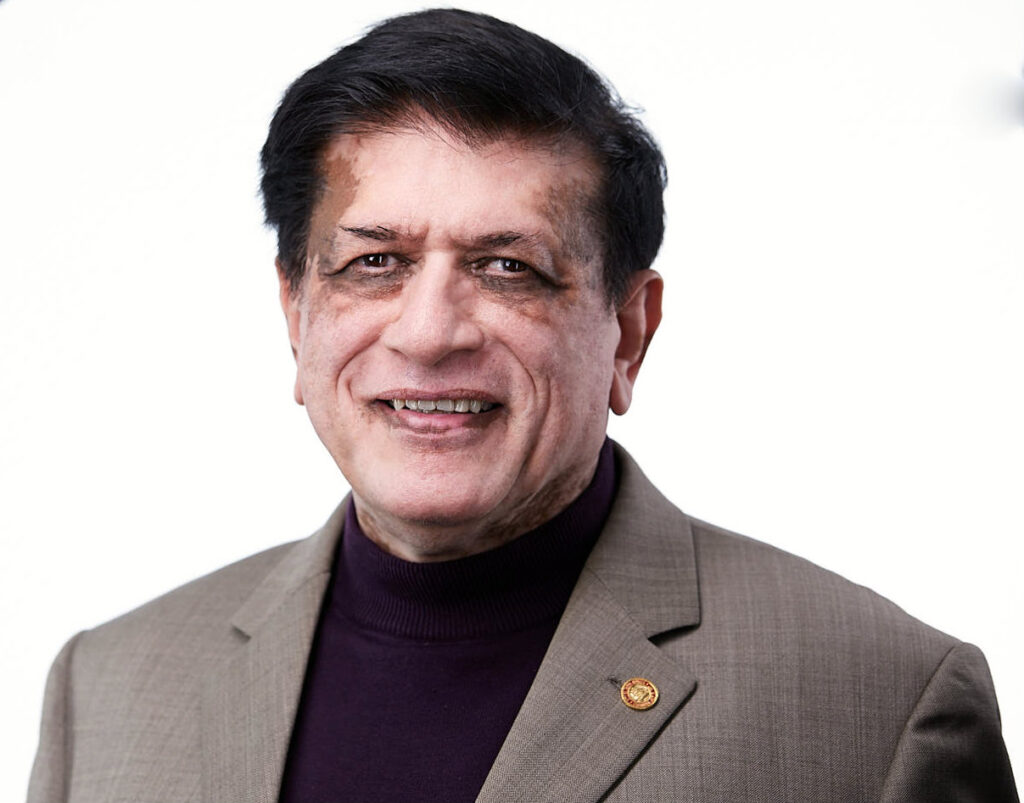{{QUOTE1}}

{{QUOTE2}}

Table of Contents
(0:00 – 2:57) Introduction
(2:57 – 3:42) Financial Concerns
(3:42 – 6:50) The Transition Process
(6:50 – 9:30) Relationship with Wealth
(9:30 – 10:48) Feeling Like a Nomad
(10:48 – 12:50) Lack of Appreciation and Poverty
(12:50 – 14:37) Relationship with Fame
(14:37 – 16:27) Investment Philosophy
(16:27 – 17:35) Choosing New Projects
(17:35 – 19:17) Handling Wealth of Opportunity
(19:17 – 20:17) Philosophy of Life
(20:17 – 21:47) Shoutouts
(21:47 – 22:28) Conclusion
Full transcript:
Joe: Joining me on St. Pete X today is Dr. Kiran Patel, affectionately known as Dr. K. It’s good to be sitting with you, Dr. K, how are you?
Kiran: Thank you, Joe, for having me.
Joe: So I would go back to the early days in the 80s, when you first came down here. You started out as a cardiologist and spent most of your educational years, becoming a doctor. And then in the 80s, sort of the businessman was born. You started moving from practicing, or in addition to practicing, doing some of the business side of things. Can you talk about how that came to you and why you started moving in that direction?
Kiran: So I was a physician in the 80’s. There was a lot of changes in the healthcare delivery system. People may not know that, but until the 1960’s, there was no Medicare. People used to pay out of their pocket. And in the 80s, a new concept was born which was known as an HMO. Most physicians were reluctant to take care of these patients because their main concern about the payments to them. My philosophy was very different – to see any patient that comes through my door. So vicariously, I came upon these opportunities to take care of patients that not many other physicians wanted to see.
[02:00]
Kiran: In that sense, I was able to open up multiple offices starting all the way from Land O’Lakes, Lutz, to Carrolwood to downtown all the way to Plant City and Brandon. And this, I say to many people when do the right things for the right reasons, the right results will follow. I never wanted to expand to too many places but when I saw that here is an opportunity of providing care to the patients who were not being welcomed by many other offices at that time. So I was able to take advantage of those circumstances and I saw the opportunity and that’s what I did.
Joe: And were there concerns founded? Did you have trouble with the financial aspect of it even though you were still giving the care?
Kiran: Everything evolves. And of course there were hiccups, of course there were issues. So there was a plan called, “Gold Plus Plan” that was started by a few entrepreneurs and it failed. That’s how Humana came to Florida. And they stepped in their shoes and it was at that time I felt that if I had a vehicle to provide care to these patients, I might have been the person that would have been stepping in the shoes of Humana and that’s how the idea of insurance companies came to my mind.
Joe: Got it. So at some point in there it had to cut into your practice time. Do you remember that transition where you had to move into practicing less to take care of the business more?
Kiran: So up to the late 90s, ‘98 – ‘99, I was actively practicing medicine.
[04:02]
Kiran: Around that time, the insurance company had grown to about a hundred million dollars of revenue. And I came to a crossroads and it was a very tough decision to stop practicing medicine and focus on business. And I did it for two reasons. One, medicine is an ever-changing world and you have to be working very hard to keep up with the new drugs, technology, etc. Also, there is a significant potential of malpractice because every contact with the patient in our world is a potential invitation to malpractice. One in three physicians had experienced this type of litigation some founded, some non-founded. And on the other side, I had the opportunity of growing a healthcare business that does the same thing. What I was able to do is provide care to seniors who could not afford to buy their regular insurance. So I saw a way of serving these senior citizens with the opportunity to provide them care and I felt that through business, I would be able to employ more people, I would be able to use my gains to do more healthcare in India, in Africa and in the United States. So I opted to move in ‘98 – ‘99 towards full-time business and left the cardiology practice.
Joe: I think the other problem is when you have so much money, people would be having heart attacks on purpose just to get to see you to ask you to invest in their company or something.
Kiran: No, I think, like most people, I’ve evolved for a period of time.
[06:00]
Kiran: And I have seen tough days that any entrepreneur sees. It was unheard of for an individual doing insurance company. So for me to build that company took a lot of time, energy, effort, 18 hours a day, struggle of finding capital. So I think once you reach a peak, people forget that that has been grueling hours that have been put into your success, there are challenges that we have taken on. So now people can look at a person who has succeeded, but it took me almost 30 years – 40 years to get where I am today.
Joe: You mentioned your gains and obviously, you worked from – You didn’t start in this world with the wealth that you have now. Talk to me about your relationship with wealth; it’s made you very in demand, it’s given you a lot of potential to do good. But as someone who’s worked hard to get there and sees the cycle of that happening around the community, what is your relationship with wealth?
Kiran: I think one of the biggest challenges people with wealth may have and I had myself is not knowing a relationship that is pure or it is motivated. So the bad thing about society is that they look at a successful or a wealthy person as being great and good. You can’t equate money with character. So my hope is that I will be more known for who I am and not for what I possess. And so I think my dad used to say, “To whom much is given much is expected.”
[08:00]
Kiran: And I’ve tried to live in that way, that this community, this society and this world gave me what I have today and I should try and share with it. So, my birthplace was Zambia, my origin was India. So my birthplace is Zambia, my motherland is India, and my karmabhumi, or place of work is the United States. So all of these three countries people society of them, made me who I am. I sometimes say that I am a nomad, or a global citizen and therefore, when I was blessed with the gift of wealth, I was able to give back to my motherland India to my birthplace, Zambia, and to my karmabhumi, United States, or adopted motherland. So I’m just so blessed to be able to give back to all those three countries that made me who I am today.
Joe: You have a unique makeup in that. You mentioned born Zambia, feel connected to India as your motherland. And what was the word that you used for karma…?
Kiran: Bhumi. Bhumi is land. Karmabhumi.
Joe: So your karma is attached to…
Kiran: To this land.
Joe: To this land now.
Kiran: Yeah.
Joe: It’s a unique mix. And you mentioned earlier that you have felt like a nomad, can you elaborate on that a little bit?
Kiran: So I was born in Africa under the apartheid system. And for my high school, I had to leave my home and travel 120 miles and stay in a boarding school to get my education. Then I went for my college and I was educated under the British system and get my Cambridge University all level exams, University of London all level and then went for my medical education to India.
[10:03]
Kiran: And that truly allowed me to experience my Indian heritage. Then I come to United States very well-advanced, civilized, whatever you want to use the words but – So I have seen poverty, I’ve seen apartheid system, I’ve seen a well-advanced country with all the luxuries that you can think of. So it has made me a person to appreciate and understand what value money is, what value we have and the opportunities we have in this country compared to other places of the world.
Joe: Do you feel any negative emotions for the lack of appreciation for that amongst more developed places in that, to your point you’ve seen the other side of that and so you have a built-in appreciation of what a dollar can do and what it can mean and we have a lot of people here that are working hard but it’s hard. Everything’s relative, right? So it’s hard to appreciate what you have if you don’t know the flipside of that.
Kiran: So what I would say, sometimes, one wonders that person who is called, “poor” in United States has a roof over his shoulders, sometimes has a car, most of the time has cell phones, clothes. And when you go to Africa or India, somebody that is poor will have a roof maybe that is leaking or a shelter that has no heat, no air-conditioning, a meal maybe one a day is luxury, sometimes only one meal in two days.
[12:03]
Kiran: So the perspective of poverty is a very relative term and I have seen people who have only one cloth. An example I have seen which is very extreme is between husband and wife, they had one cloth. And when we had a cataract camp, both of them could not come together at one time because they had only one cloth to share. So that’s an extreme example of poverty. But once you’ve – when you’ve not seen how bad things are in some parts of the world. It is very difficult to understand what is true poverty.
Joe: Coming back to the other end of the spectrum, we were talking about the position of wealth, something that you’ve earned into, a close cousin of wealth is fame. It’s hard, especially in our community – with the great gifts that you give and your position in the TiE community to not have a semblance of local fame. So what is that experience been like for you, your relationship with the media, your relationship with the community from that sense?
Kiran: At one time, I was very happy or aspiring and looking forward to the fame, but like most things when you have something, in my case with fame, I now feel that, that is not that important because I need some things that I wanted to do because I wanted to do it. And fame was a by-product. Although, in some people’s eyes the fame maybe the main. So it’s tough to say. Of course, I am happy and pleased that people appreciate me.
[14:00]
Kiran: But like I mentioned in the early phase that are you being appreciated only because your money or if somebody has a purpose of asking for money or in doing things like that or they genuinely admire you for what you have done? And I would much like to be a person that would be appreciated for what I have done and not for what I have.
Joe: But, of course, sometimes the things you do are what give you the fame so it’s a…
Kiran: It’s part of life.
Joe: You’ve invested a lot in the community, especially you’ve built your own businesses, you’ve invested in other businesses. Can you talk about your investment philosophy?
Kiran: I have always been an instinct investor. I have never been a person of deep analysis, but have I had something to business that appealed to me and I felt will be good.
Joe: Have you tried to…were possible, do you tend to look at – it seems that you would – to try to build businesses that complement each other to build around a central theme or do you see more taking individual opportunities as they come to you?
Kiran: So once I get involved in a business, then in that business, anything around it, I would be interested in. So when I was in healthcare, then the ancillary services, I would be interested in, right? Because then I am able to control and deliver what I want to deliver a whole and I’m less dependent on other parties but sporadic, different investments have not been. So we will see as we go along what happens, but now I’ve been in hospitality for example, in a big way.
[16:05]
Joe: Yeah, a very big way.
Kiran: So, there are challenges with that, but I found that a vehicle of a steady cash flow and I opted to go for large hotels rather than smaller ones because management-wise it would be easier.
Joe: I think by any definition I’m probably a workaholic. I like to put in 60 or 80 hours a week and I think that you’re similar to that, can you talk about your philosophy on deep versus wide when it comes to how you choose to take on new projects? How much is too much and then how has that change as you’ve gotten older.
Kiran: So first, I feel that any project you take so, for example, when my son wanted to join me, I gave him advice that if you can eat, drink, sleep and breathe the business you’re going to be in, then you should be part of a person working with me. Because it’s a full-time and it’s not just five to eight or it’s a 24/7. So unless you get involved, totally emerged into what you’re doing, the success will not be that easy. For you to succeed, it will be that type of commitment that you’ll have to give.
Joe: But you can only give that much commitment to so many projects and there’s so many good projects out there, how do you handle the wealth of opportunity in front of you?
Kiran: One, you need to be selective. Two, you can find the right people to lead that. So if you have a personality that is willing to delegate to the right people.
[18:02]
Kiran: Because one of the challenges that some people have used the word, “control freak” may be a good one here that they would like to be involved in everything themselves, then you are going to be restricted on how much and what you can do. But if you pay enough attention initially, and if you have the right person, you are willing to let go, then you will see the opportunities that will be there.
Joe: Were you ever a control freak or have you always been okay at delegating?
Kiran: I am more of a delegator and that is how I have succeeded in multiple fields, to be surrounded by the right people who may be more knowledgeable than myself in these things.
Joe: So, besides knowledge and hard work, what are some of the other character traits you look for in the people you surround yourself with, professionally?
Kiran: I think commitment. So once you have commitment, passion, persistence, perseverance, those are the things that I would look for.
Joe: So moving outside of business a little bit. Let’s talk about your philosophy of life as you’ve gone through coming up, and to achieving wealth and now as you’re entering the second half of your life, what’s changed and what gives you meaning every day?
Kiran: I think the desire to do things more now in areas of healthcare and education here and globally, is what I live for. Sometimes, I get these comments that, “Why are you still working so hard?” or “Why do you want so much money?” And usually my answer is, which I don’t verbalize to everybody, that money is a byproduct.
[20:04]
Kiran: And I will do what I enjoy and hopefully, not do things to make money, but let that be a byproduct of what I enjoy.
Joe: Wonderful. I’ve enjoyed our conversation. We end each show with a shout out. Someone that is doing good work in the community that you would like to give some appreciation to.
Kiran: There are so many people. I feel the big names are all known, but what I like to tell people is that little things done by so many people, all the volunteers. So what I say to people that money, people can make. Some people may make more, some people may make less. And when you think about an individual, life is given by God, you never know what tomorrow is, so the people, the volunteers, the people give their time, I believe, are giving more than people who just give money. Giving your time is priceless. Sharing your wealth is something that you acquired and you may do it. So, I believe that what should be more commendable is these people who give up their life, their time, and spend it helping other people. And that’s the type of people which are not noticed, I believe that should be recognized and appreciated.
Joe: Wonderful. Thank you.
Kiran: Thank you.



